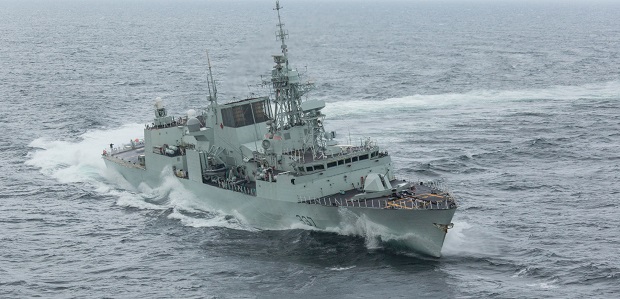The North Atlantic Treaty Organization (NATO) is sending warships to the Aegean Sea to stop the smuggling of migrants from Turkey to Greece which has resulted in the deaths of hundreds of refugees feeling war-torn Middle Eastern countries during the first two months of 2016.
The move of NATO to intervene in Europe’s migration crisis was brought about by a joint request from Greece, Turkey and Germany. The announcement was made during the NATO defence ministers’ meeting in Brussels which is currently underway.
NATO Secretary General Jens Stoltenberg said a small naval force led by Germany will head to the Aegean Sea to commence their mission “without delay.” He said the NATO ships will be engaged surveillance and intelligence gathering and will monitor the flow of migrants in coordination with the Greek and Turkish coast guard.
He said the ships will come from NATO’s Standing Maritime Group 2 which is in Cyprus.
“This is about helping Greece, Turkey and the European Union with stemming the flow of migrants and refugees and coping with a very demanding situation,” Stoltenberg was quoted by the Guardian.com, as saying. “This is not about stopping or pushing back refugee boats.”
He said the NATO ships will obtain “critical information and surveillance to help counter human trafficking and criminal networks.”
It is not yet clear what the extent of the NATO vessels’ interaction with the migrants and smugglers will be.
The Canadian Navy’s HMCS Fredericton has been ordered to head for the Aegean Sea immediately to be part of the flotilla, according to Defence Minister Harjit Sajjan.
“What the Fredericton will be doing is reconnaissance and surveillance as to further details these will be worked out by the military commanders,” he said in a teleconference with journalists today. “As you know, we just decided this today so in terms of details they will still be worked out.”
Sajjan also said “it is very refreshing” to see the response of NATO to the refugee crisis.
The Fredericton is a Halifax-class frigate. In 2014, it completed its modernization retrofit. Halifax-class frigates, employ the Evolved SeaSparrow Missile system as the vessels main above-water warfare defence capability.
The ship was deployed on January 5 of this year on Operation Reassurance to join the Standing NATO Maritime Forces in the Mediterranean Sea as part of NATO’s measures of promoting security and stability in Central and Eastern Europe. It replaced the HMCS Winnipeg which had been part of the Standing NATO maritime Forces since July last year.
But today, U.S. Defence Secretary Ash Carter was quoted by media as saying that a criminal syndicate is responsible for “exploiting” the refugees and migrants. “targeting that is the greatest way an effect could be had.”
In 2014, the United Nations High Commission for Refugees (UNHCR) reported that some 3,500 people died or were reported missing in the Mediterranean Sea.
No less than 972,000 migrants and refugees arrived by sea in Europe in 2015, another 34,000 arrived by land that same year. The people are fleeing violence and war in countries such as Syria, Iraq and Afghanistan.
During the first two months of 2016, about 75,000 migrants and refugees arrived in Greece by sea, according to the United Nations. Of that number, 45 per cent came from Syria. More than 400 people have died attempting the journey.
